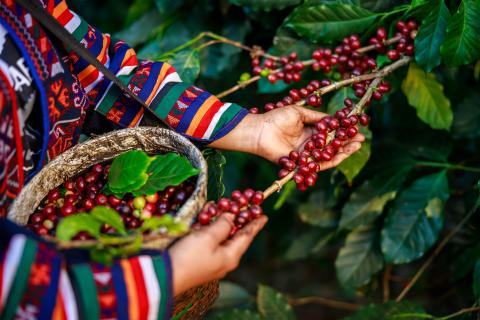Sabah: Conversion criterion hinders expansion of FSC
There had to be a cut-off date, and FSC chose the year 1994. After that point, certification of plantations converted from natural forest is excluded. But FSC certification was invented as a market-based tool for change, and the Director of Sabah Forestry Department argues this may bar the scheme from influencing management of Sabah's most precious forests.
 FSC certification was invented as a market-based tool for change. But Criterion 10.9, forbidding certification of plantations converted from natural forest after 1994, may effectively bar the scheme from having any influence on the management of Sabah’s most precious forests.
FSC certification was invented as a market-based tool for change. But Criterion 10.9, forbidding certification of plantations converted from natural forest after 1994, may effectively bar the scheme from having any influence on the management of Sabah’s most precious forests.
“New Zealand destroyed its natural forests and lost much of its unique wildlife before the 1950s. By comparison, not a single species has become extinct so far in Sabah. Yet today, many plantations in New Zealand are FSC-certified, while most of Sabah’s forests are effectively excluded from certification due to the conversion of a small percentage of the land after 1994, in the end, not more than 10% of all reserves and conservation areas.”
Datuk Sam Mannan, Director of Sabah Forestry Department, raises a point that is becoming urgent in the case of Sabah, Malaysia: How can Sabah ensure good management of its forests if the gold standard market reward scheme is excluded in advance?
Conversion – a compromise solution
In 1997, a new licensing system was introduced in Sabah as part of a privatisation processs. About 2 million hectares – more than half of Sabah’s total forest cover - were concessioned to private companies for periods of between 50 and 100 years.
“Due to mismanagement in the past, many areas were overlogged, and sustainable logging will only be possible in 30-40 years’ time. The private sector cannot be expected to accept zero income for such a long period of time. The solution was to permit conversion of 15% of the forests to plantations in order to safeguard the remaining 85%”, explains Datuk Sam. The concessionnaires are further obliged to obtain certification by an internationally recognised forestry scheme by 2014.
Datuk Sam urges FSC to look at Sabah as a special case. “The Forestry Department has opted for FSC for the areas we manage, and we are expanding our commitment considerably. It would be natural for our licensees to follow our example and go for the gold standard, FSC, to cover their entire concessions.
But if they are unable to gain recognition by FSC, then they will need to choose another certification system. “This is a big-scale issue. Much of the licensed land is lowland rainforest, harboring the richest biodiversity. At the same time, it is also very suitable palm oil land”.
In principle, the non-converted part of the forests could still become FSC-certified; but concessionnaires are likely to choose a single alternative scheme rather than working with two different schemes for different parts of their concessions.
Why does Sabah Forestry Department promote FSC certification?
“The most important benefit is the credibility aspect. We need to prove that we are doing the right thing and our FSC certification clearly helps us to keep our standards high. For example, we have carried out surveys to identify High Conservation Value Forests (HCVF) in collaboration with WWF”.
"We have managed to obtain price premiums for FSC timber of about 10-20% over the years. Most importantly, our certification allows us to penetrate markets - with FSC certification in place, we do not have to answer any questions from buyers. Currently most of our certified timber ends up on the European and North American markets, but China is also an important emerging green market”.
Motion 18 submitted to the General Assembly 2011 suggests opening the option of certifying post-1994 converted plantations on certain conditions, in recognition of the benefits for the plantation management. The key proponent of this motion is Daemeter Consulting of the Social South.


